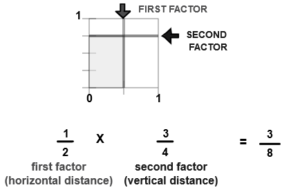What Size Drill Bit Do I Need to Tap a 3/8 Hole? When it comes to finding the right drill bit size for your project, there are a few things you need to take into account. The first is the type of hole you’re looking to create. For example, a pilot hole is much smaller than a through hole.
The second is the diameter of the material you’re drilling into. A 3/8 hole, for example, will require a different size drill bit than a 1/2 hole. Finally, you need to consider the thread count of the tap you’re using. This will determine the pitch of the threads and ultimately the size of drill bit you’ll need to use.
Now that we’ve gone over the basics, let’s get into more detail on what size drill bit you’ll need to tap a 3/8 hole. If you’re working with standard 10-24 taps, then you’ll need to use a 5/16 inch or 8mm drill bit. If you’re working with metric taps, then you’ll need to use a 6mm or 1/4 inch drill bit. And lastly, if you’re working with larger taps such as 1/2-13 or M6x1, then you’ll need to use a 3/8 inch or 10mm drill bit.
What size hole do I drill for a 3/8 pipe tap?
When it comes to drilling holes for taps, the size of the hole you need to drill depends on the specific type of tap you’re using. For example, a 3/8-inch pipe tap will require a 7/16-inch drill bit. The reason for this is because the lead screw (the part of the tap that actually cuts the thread) is slightly smaller than the body of the tap.
If you’re not sure what size hole to drill for your particular tap, there are a few different ways to find out. One is to consult the manufacturer’s instructions, which should list the recommended sizes for various types of taps. Another option is to use a tap and die chart, which can be found online or in many hardware stores.
Once you know what size hole to drill, there are a few other things to keep in mind when tapping threads into metal. First, make sure your drill bit is sharp and correctly sized – if it’s too small, it won’t create enough space for the tap; if it’s too large, it could damage the threads.
Second, use cutting oil or lubricant on both the bit and the workpiece to help reduce friction and heat. And finally, work slowly and carefully to avoid stripping the threads or breaking the tap. With a little patience and practice, you’ll be able to create perfect threads every time.
What size is 3/8 for plumbing?
What is a 3/8 in drill?
How do you drill a 3/8 hole in steel?
What drill bit do I use for a 3/8 screw?
For most general purpose drilling in wood, metal, and plastic, you will want to use what’s called a High-Speed Steel (HSS) drill bit. These bits are inexpensive and can handle drilling through most materials quickly. The downside to HSS bits is that they don’t retain their sharpness as long as some other types of drill bits and they’re not ideal for use on hardwoods or hardened metals.
If you need to drill through tougher materials or you want your holes to be more precise, then you’ll want to consider using a Carbide-Tipped (CT) drill bit. CT bits are made of high quality steel with a tip made of carbide, which is one of the hardest substances on earth. This makes them ideal for tough drilling applications and also allows them to hold their edge much longer than HSS bits. However, all that hardness comes at a price and CT bits can be 2-3 times more expensive than HSS options.
There are also several specialty drill bit options available that are designed for specific tasks like boring large diameter holes or making pocket holes. But for most people doing general purpose DIY projects around the house, a basic HSS or CT drill bit will get the job done just fine.
Is it better to drill fast or slow through metal?
When it comes to drilling through metal, there is no one answer that fits all situations. The speed at which you drill will be determined by the type of metal you’re working with, the size of the hole you’re trying to create, and the type of drill bit you’re using.
In general, softer metals like aluminum can be drilled at higher speeds, while harder metals like stainless steel require slower speeds to avoid damage to the drill bit. When drilling larger holes, it’s also important to go slowly at first to avoid making the hole too big.
The best way to figure out the right speed for your project is to experiment a little and see what works best. Start with a lower speed and increase it until you find the sweet spot. With a little practice, you’ll be an expert at drilling through metal in no time!
What is the best drill bit to use for steel?
Which is better cobalt or titanium drill bits?
For a long time, there has been a debate on which type of drill bit is better – cobalt or titanium. Both have their pros and cons, but ultimately it depends on the project you’re working on as to which will be best suited. In this blog post, we’ll take a closer look at both types of drill bits and see which comes out on top!
Cobalt drill bits are made with an alloy that includes 5-8% cobalt. This gives them superior hardness and heat resistance when compared to other Drill Bits types. Cobalt drill bits are also great for drilling through tough metals, including stainless steel and cast iron. The big downside to cobalt drill bits is that they can be quite brittle – meaning they can snap easily if not used correctly.
Titanium drill bits are also extremely hard and heat resistant, but they don’t contain any cobalt in their alloy makeup. Titanium drill bits can handle high speeds without dulling quickly, making them ideal for use in power drills. One thing to keep in mind with titanium drill bits is that they do tend to cost more than other types – but they should last longer, so you may end up saving money in the long run!
So, which is better – cobalt or titanium drill bits? It really depends on the project you’re working on. If you need to drill through tough metal, then cobalt drill bits are a good choice. However, if you’re looking for a durable drill bit that can withstand high speeds, then titanium is the way to go. Whichever you choose, just make sure to use them correctly to avoid snapping!
Which drill bit is better cobalt or carbide?
What is the hardest metal to drill?
When it comes to drilling, there are a few different factors that can make a metal more difficult to drill than others. hardness, strength and resistance to heat are all important factors to consider. With that in mind, here is a look at the five hardest metals to drill:
- Titanium – This metal is extremely strong and resistant to heat, making it very difficult to drill.
- Tungsten – Tungsten is also very strong and resistant to heat, making it another difficult metal to drill.
- Inconel – This nickel-based alloy is known for being both strong and resistant to heat, making it yet another difficult metal to drill.
- Stainless Steel – While not as strong or resistant to heat as the other metals on this list, stainless steel can still be difficult to drill due its hardness.
- Aluminum – Aluminum may not be as hard as some of the other metals on this list, but it can still pose drilling challenges due its strength and resistance to heat build-up.
Conclusion
We hope this blog post “What Size Drill Bit Do I Need to Tap a 3/8 Hole?” has helped clear up any confusion you may have had. If you have any further questions, feel free to reach out to us and we would be happy to help!
Hey, check out: How Many 32nds Are in an Inch?
Today sponsors are Localhandymantulsa.com , sprinklerrepairlongisland.com , Mailboxrepairtulsa.com , Chestercountytowingservices.com and Huttotxroofrepair.com. Always providing the best services in town.






